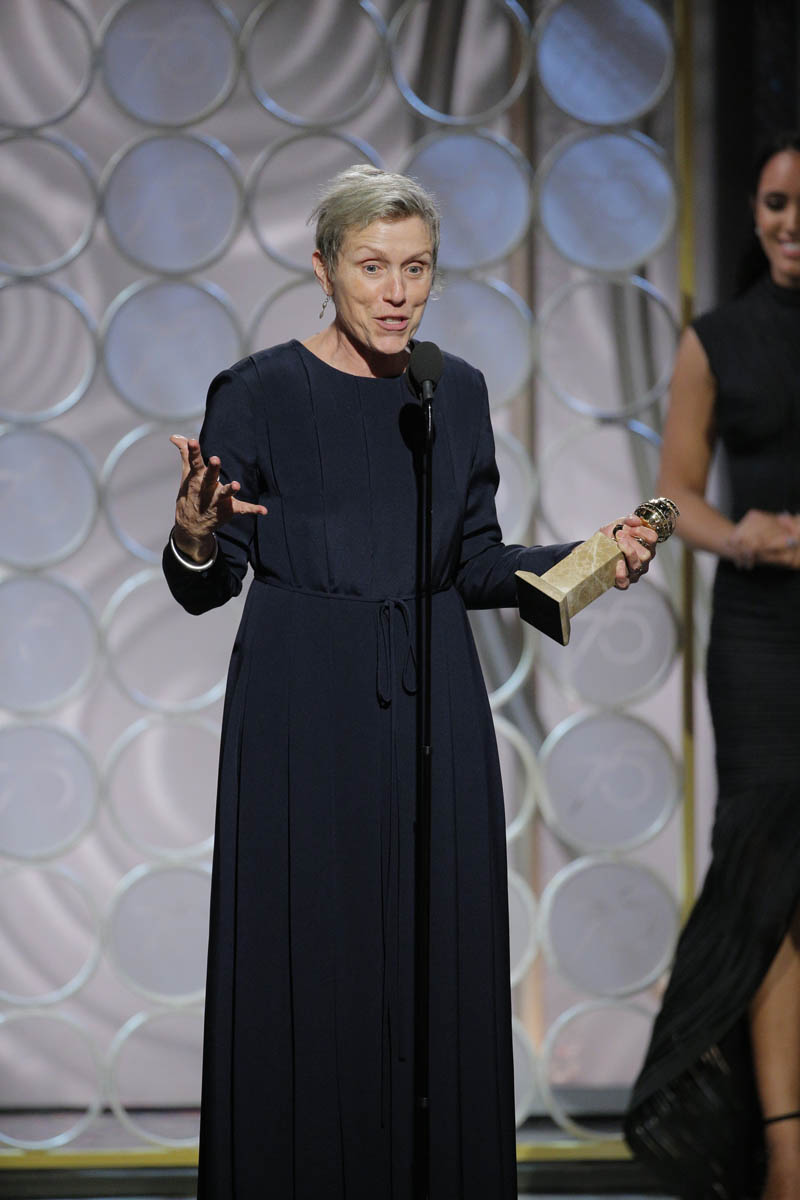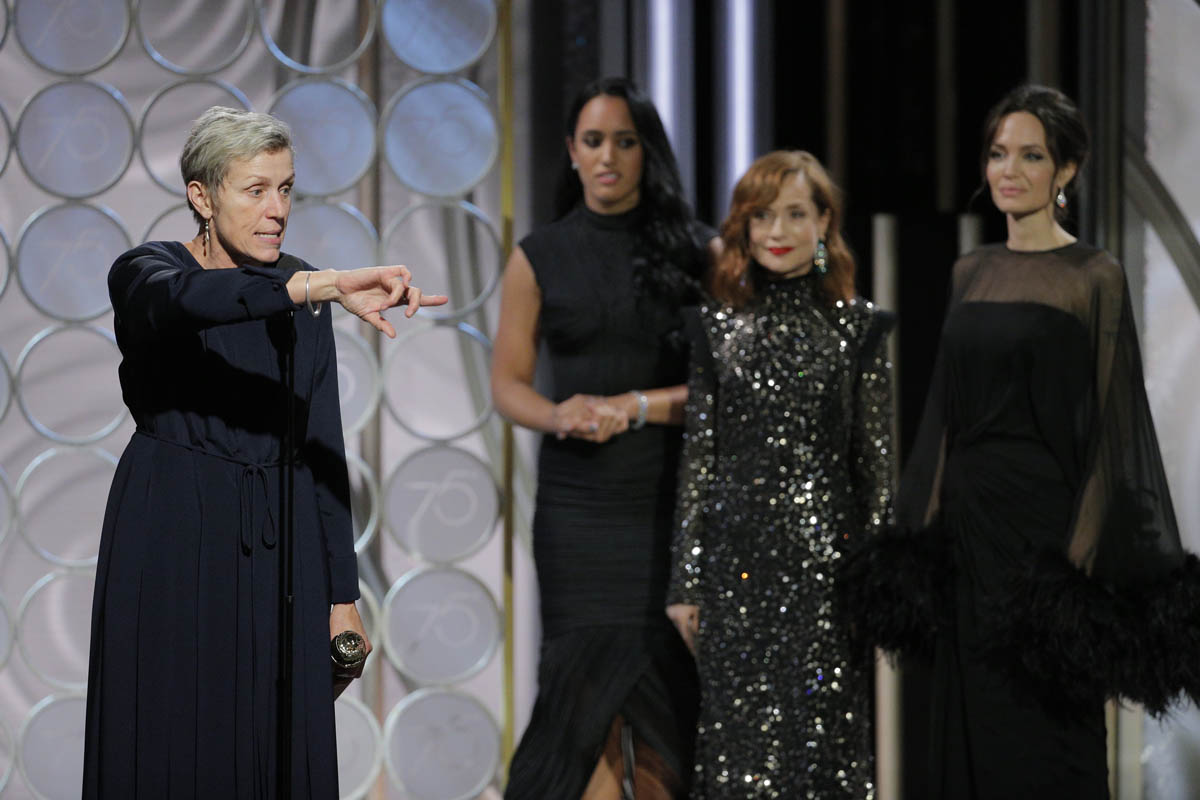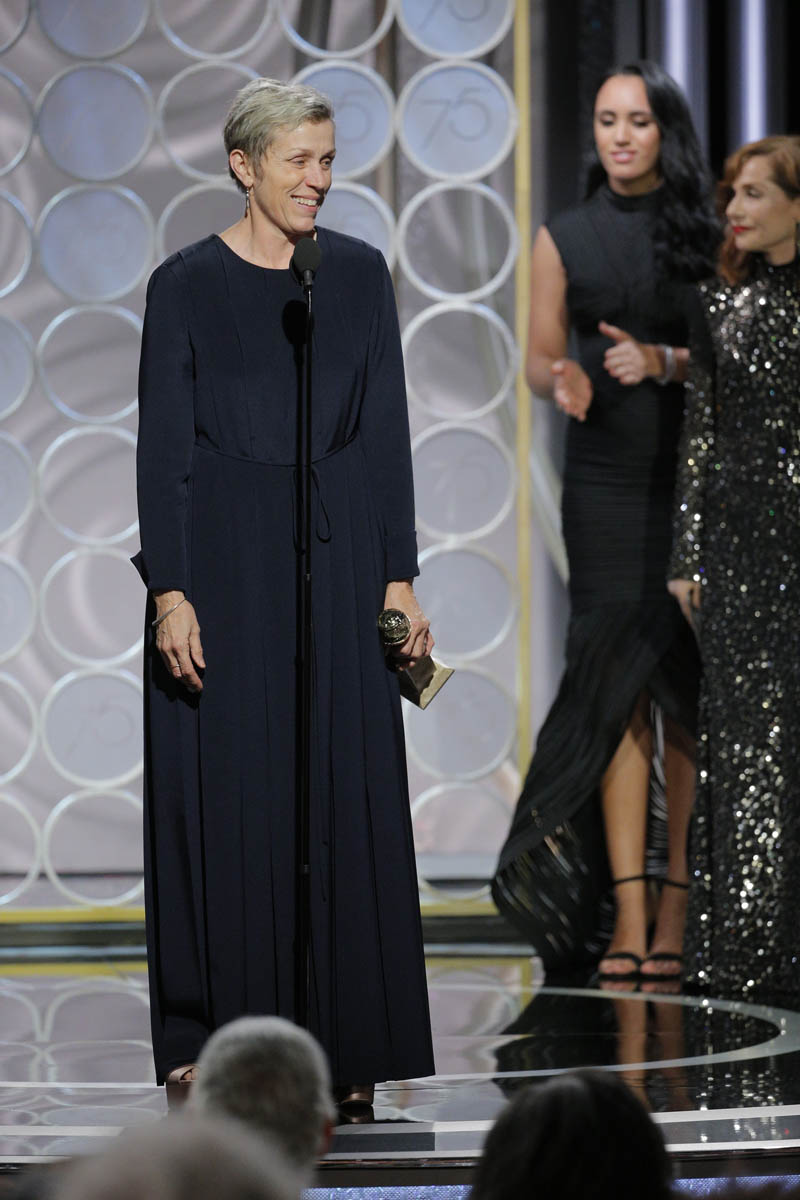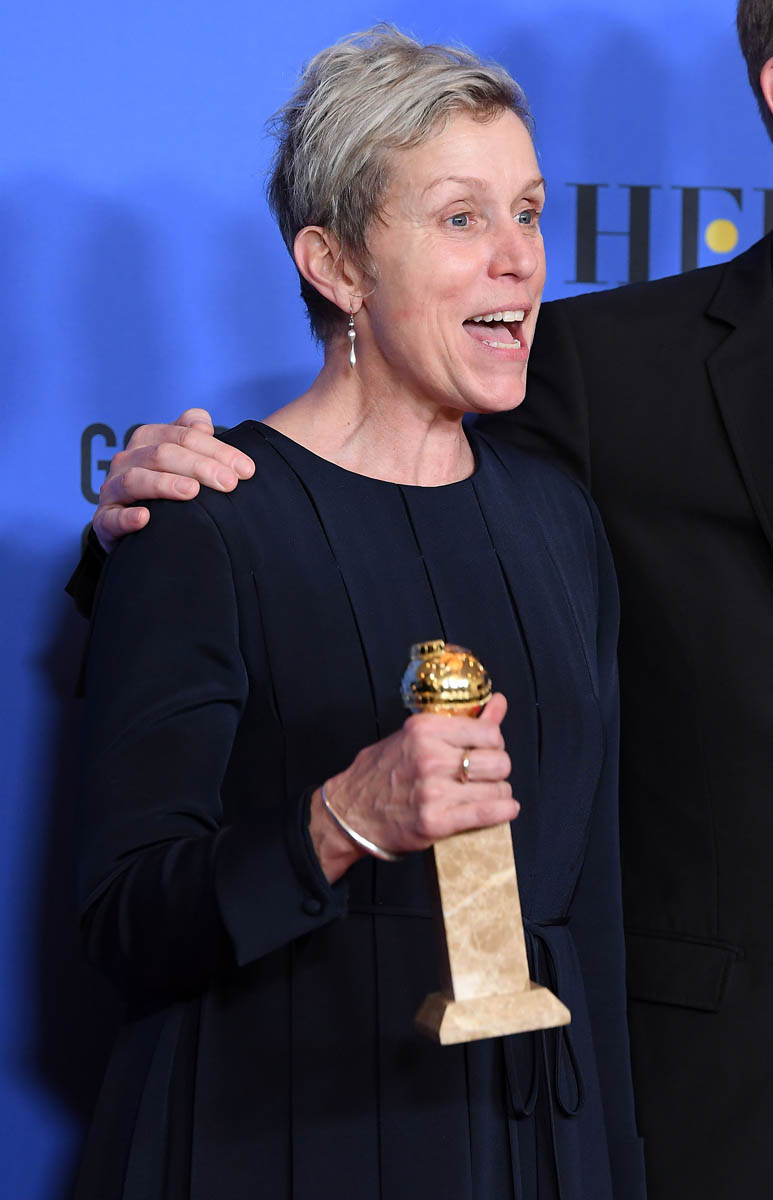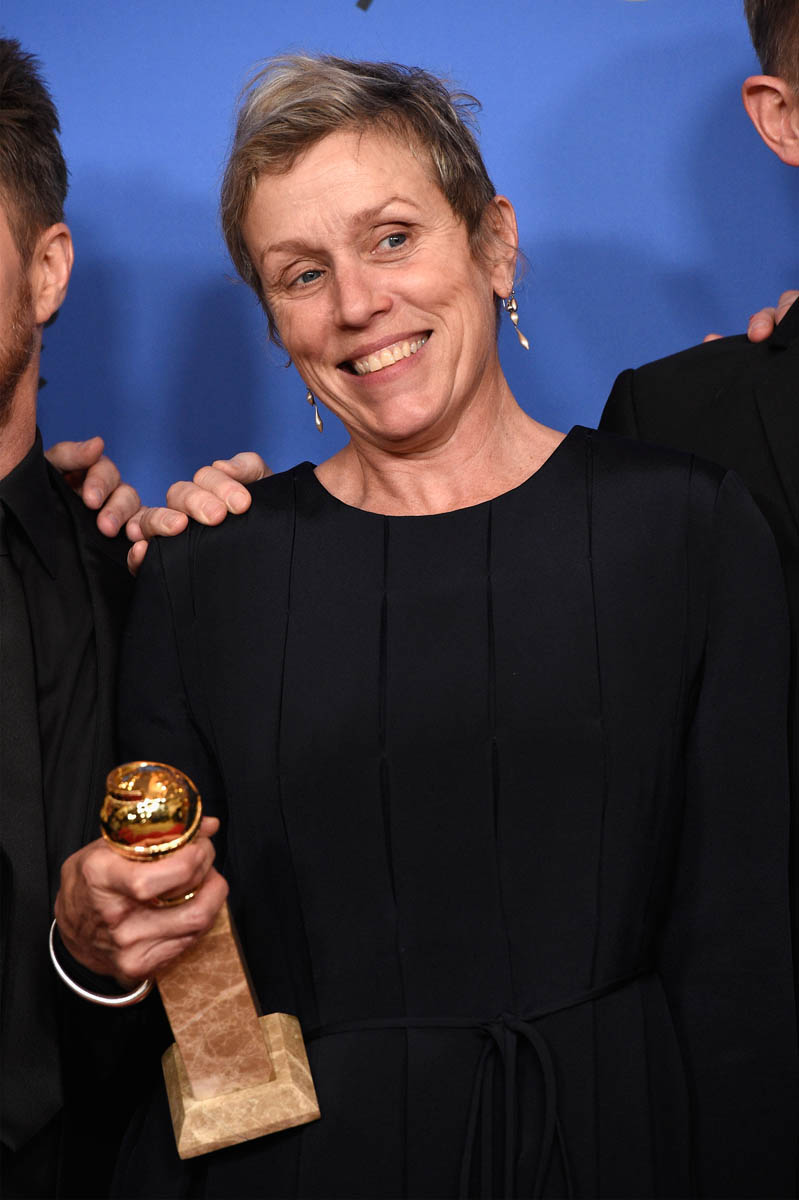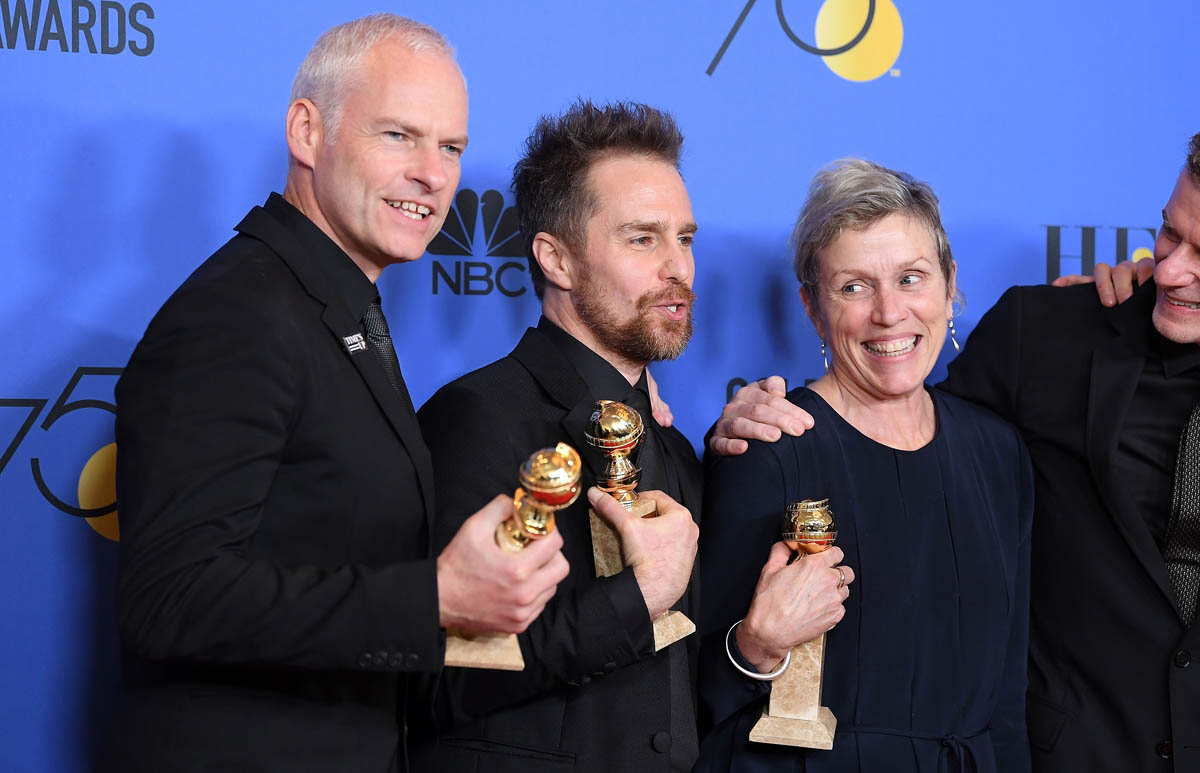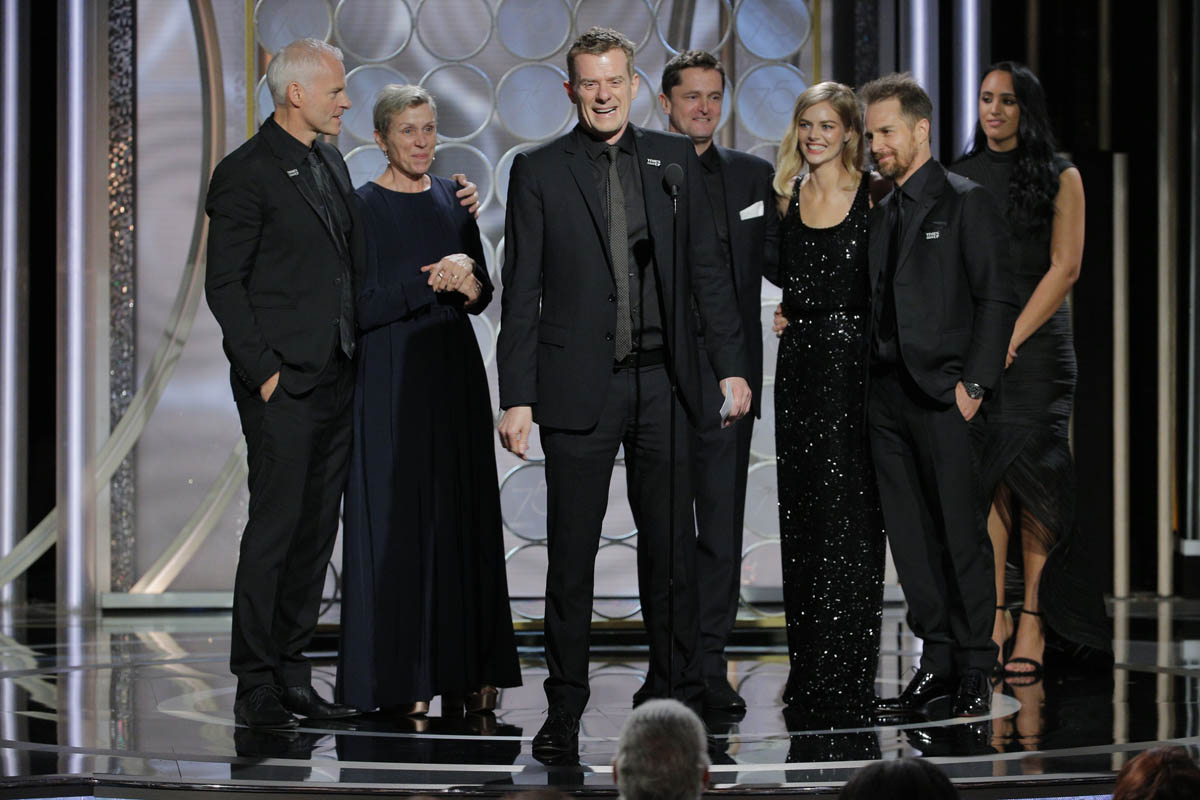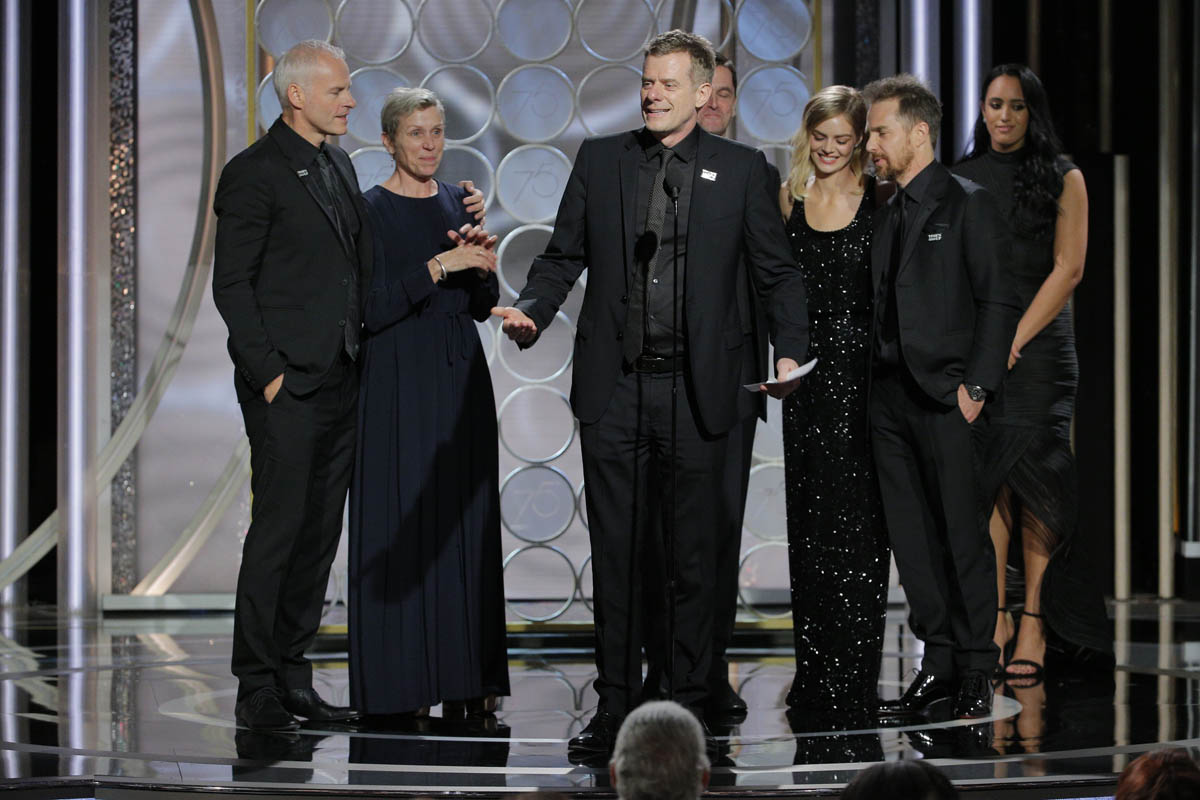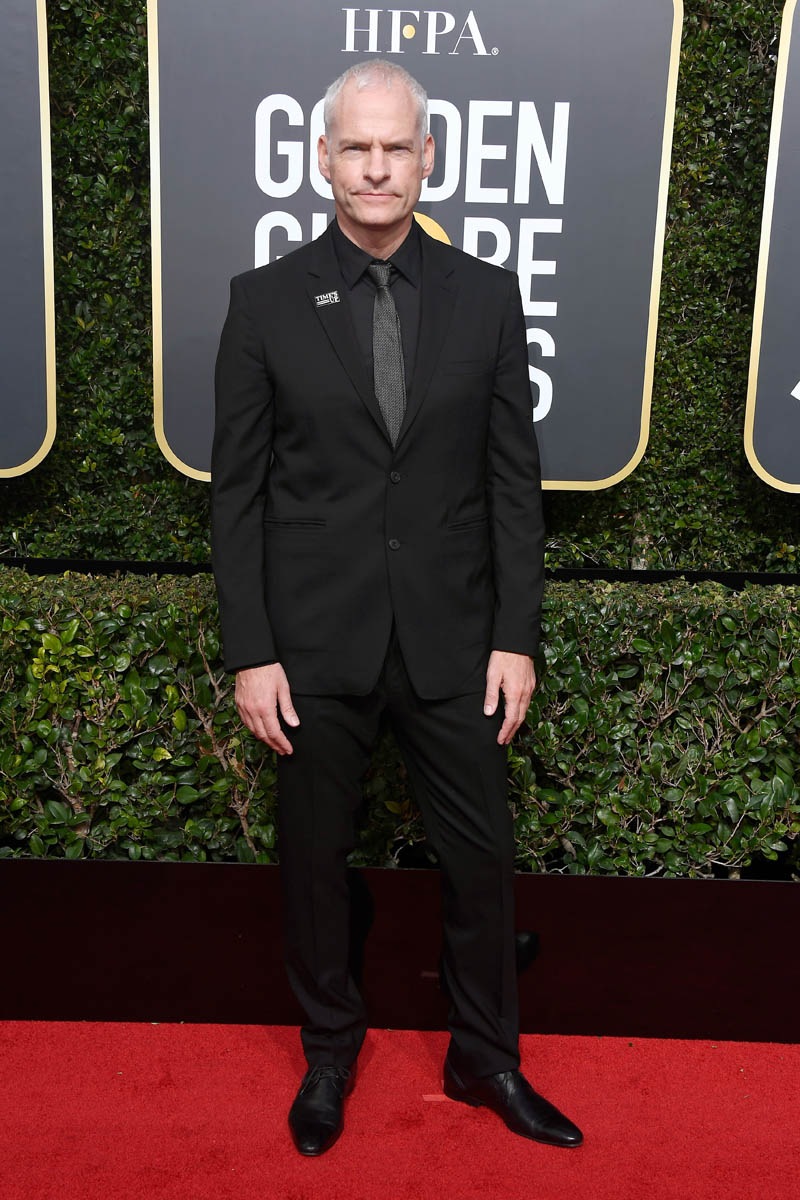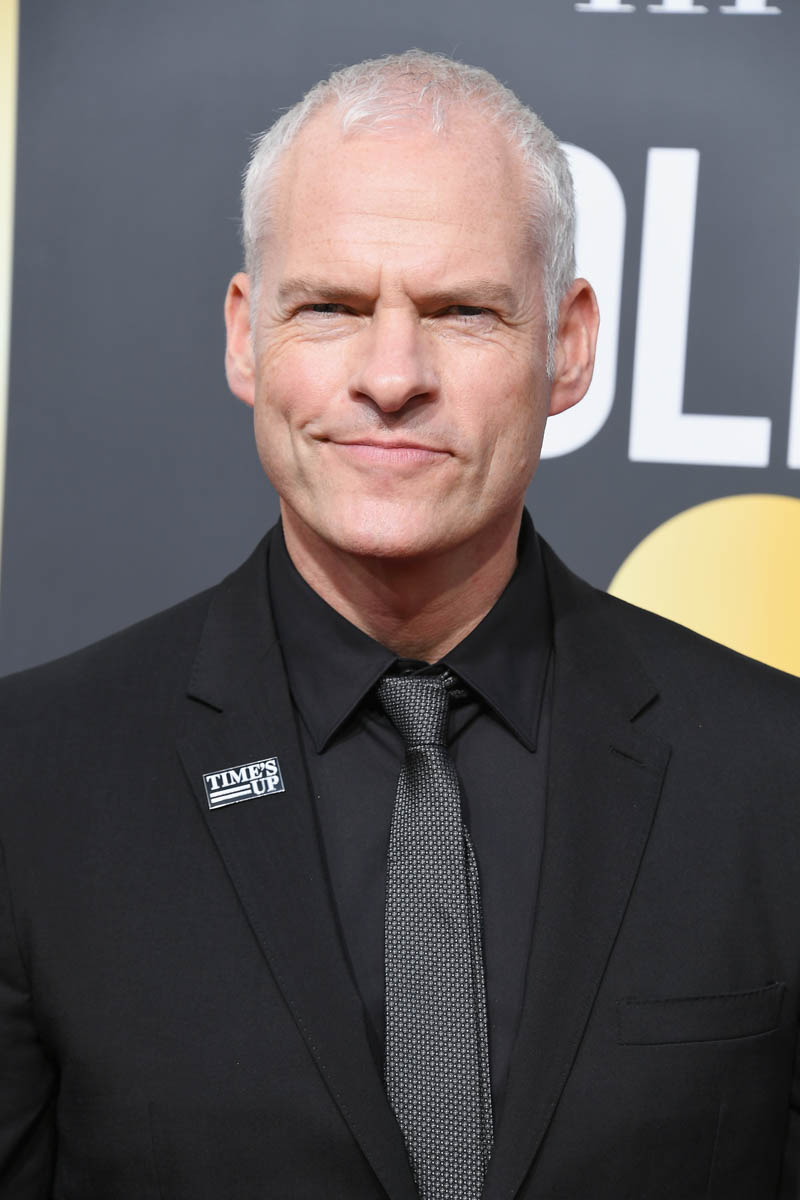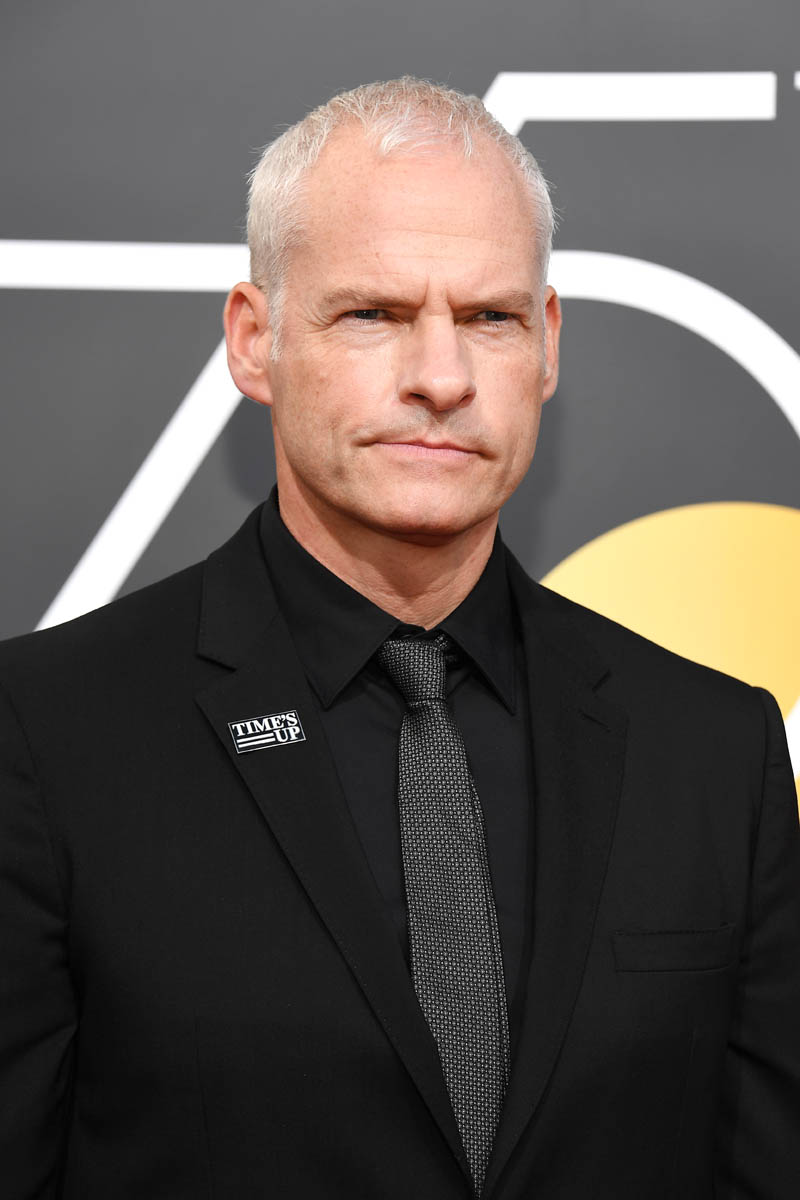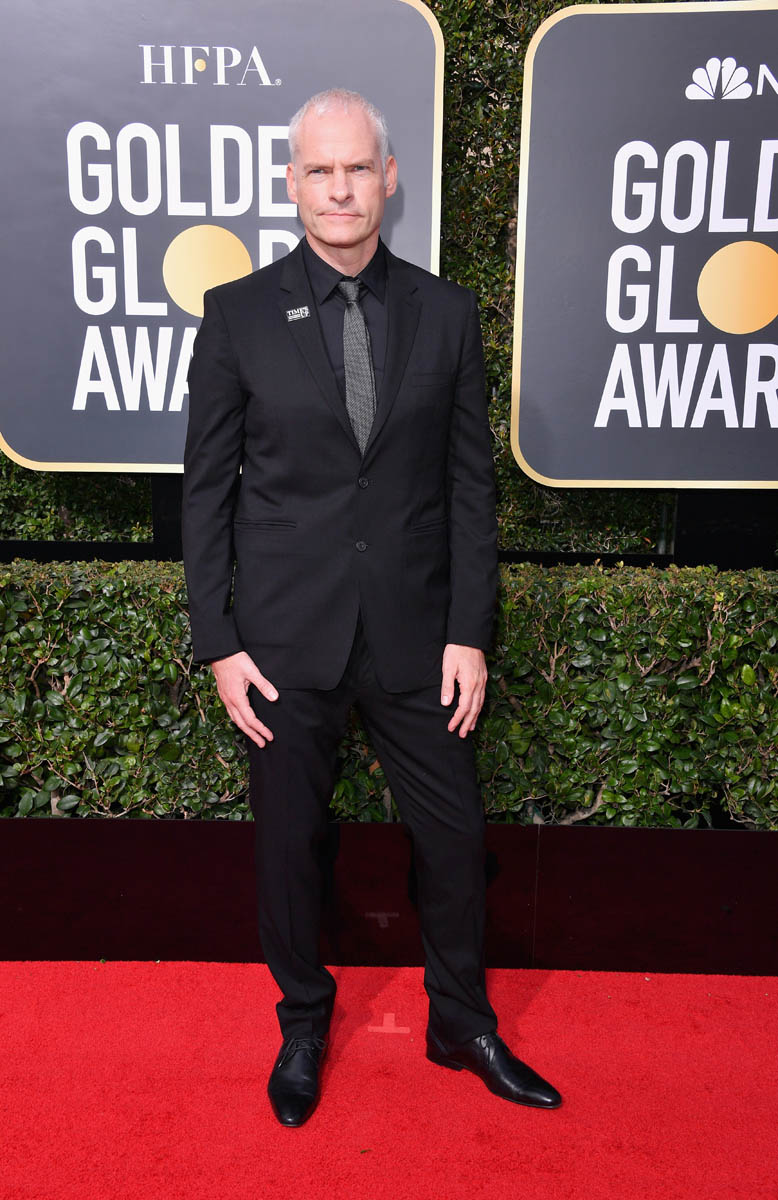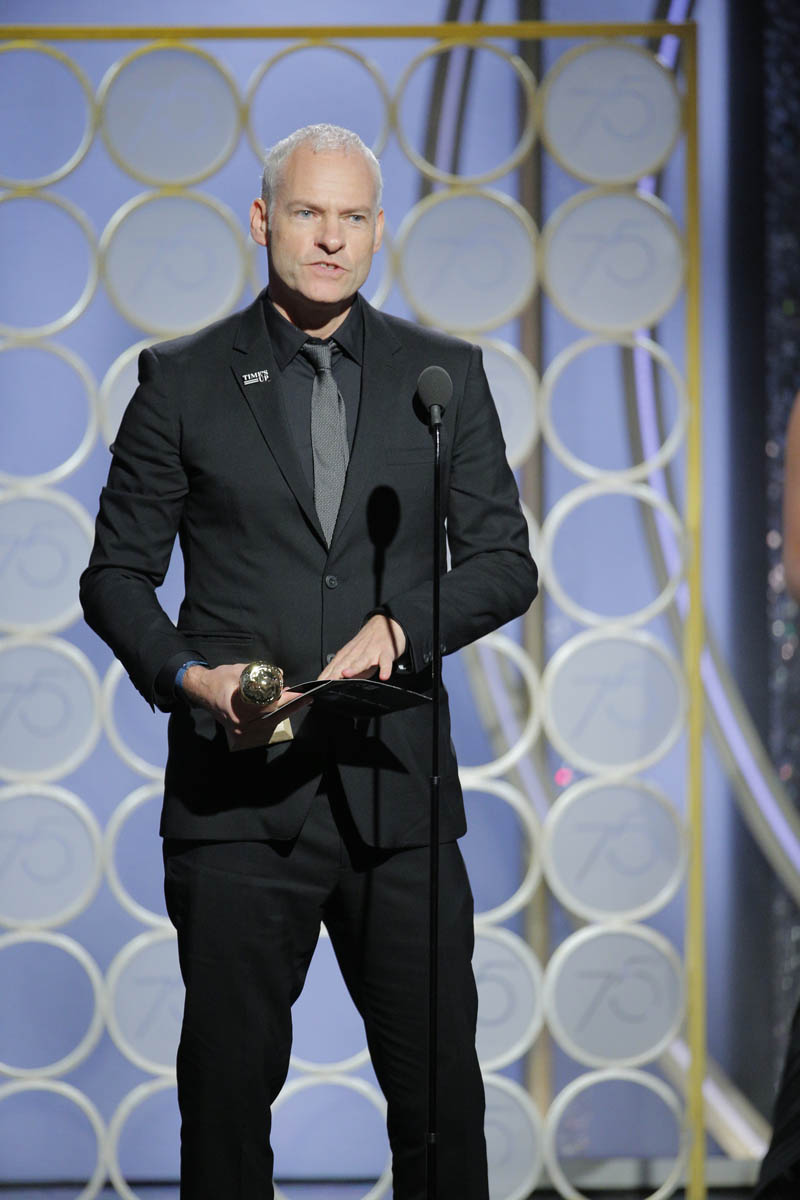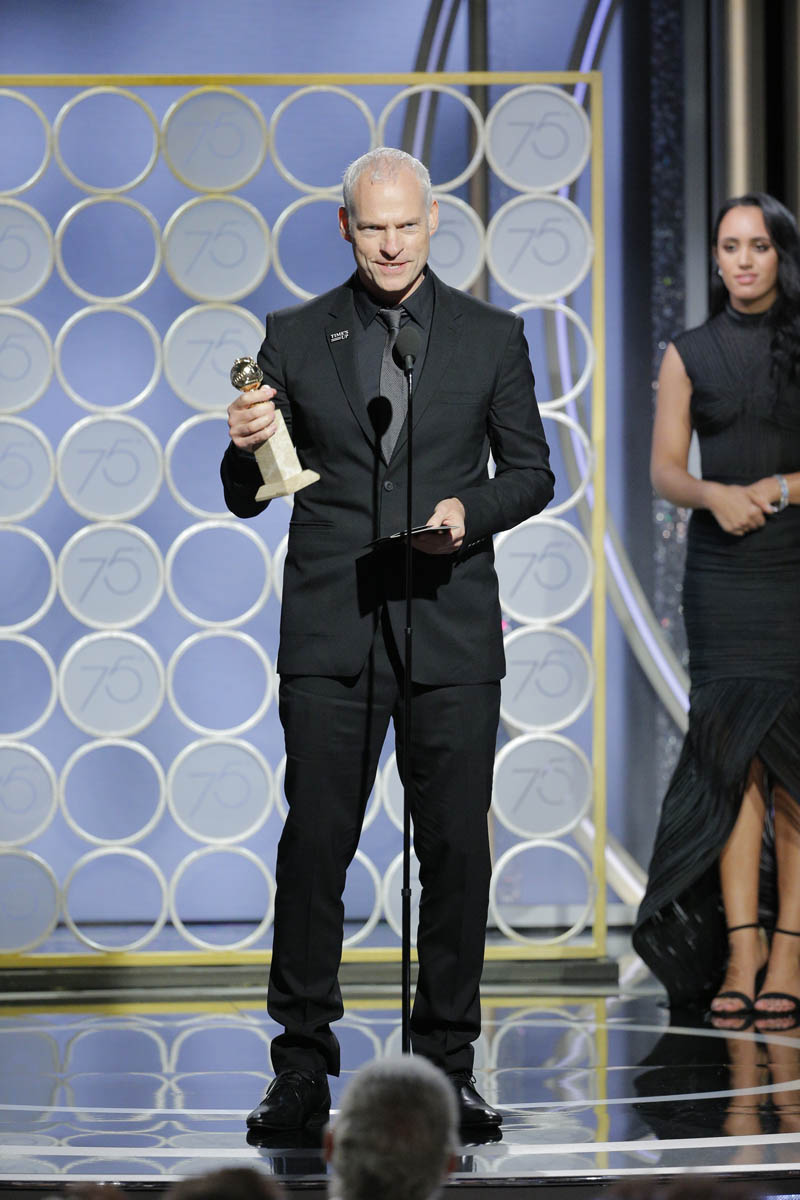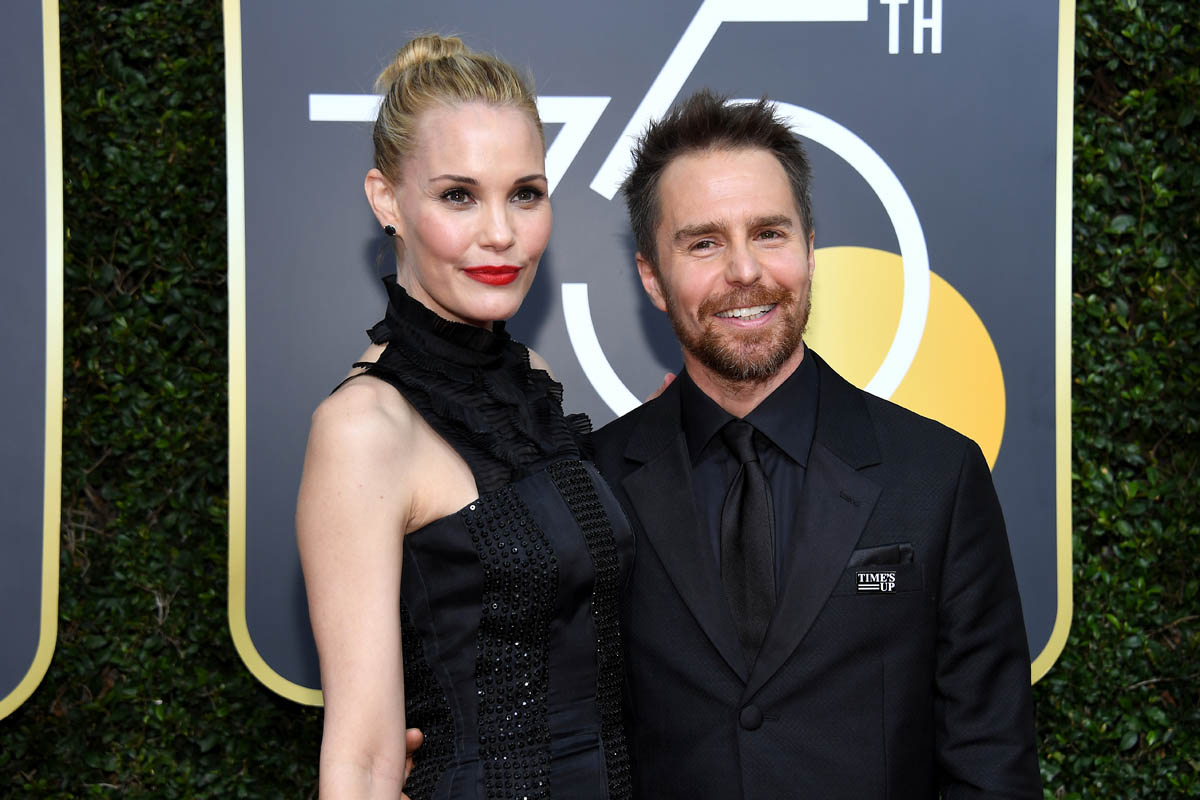Frances McDormand, the frontrunner


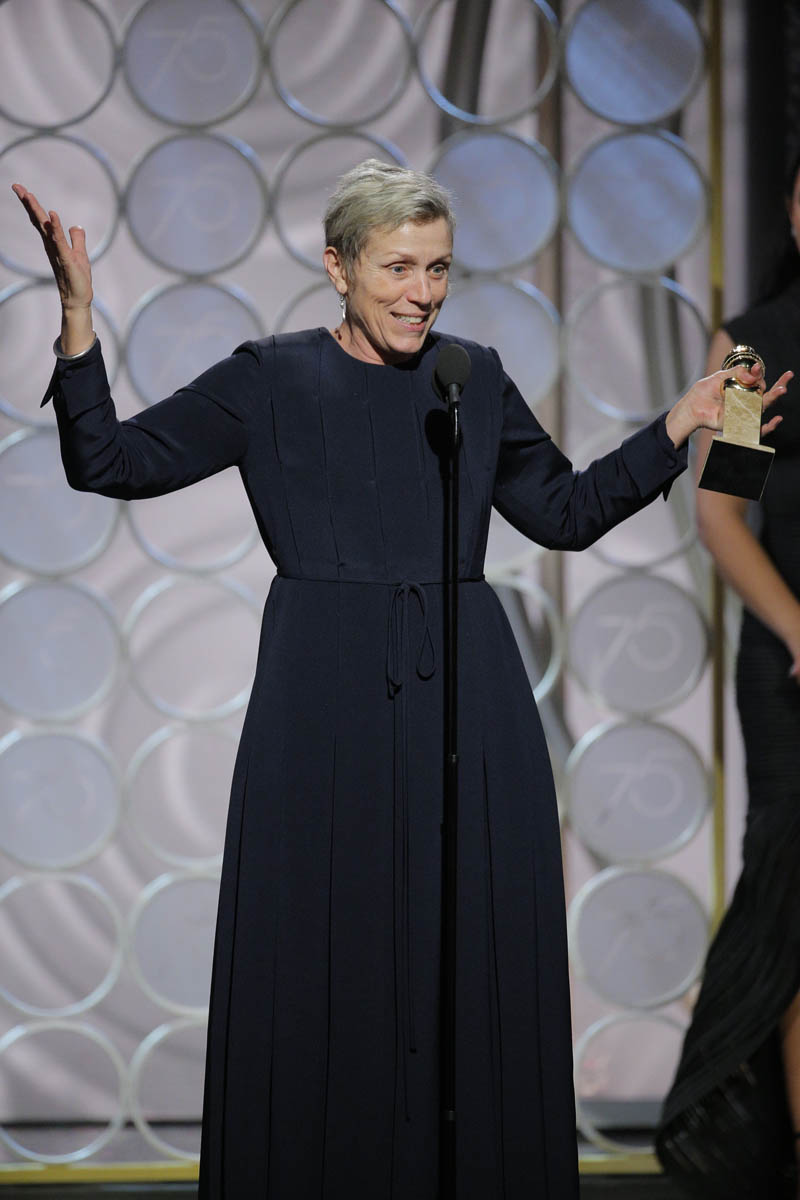
Frances McDormand showed us tonight that she can be a hardass. That she doesn’t suffer fools gladly – and I’m hopeless with these kinds of expressions so if I haven’t used it correctly here, I’m sorry. I’m the fool she wouldn’t suffer. Frances McDormand had no time for that camera that kept getting in her face…
Will forever love Frances McDormand #GoldenGlobes pic.twitter.com/wVADqiyD4k— Rachel Rose Gold (@RachelRoseGold1) January 8, 2018
Except that that camera being in her face was what kept us entertained all night. Like the only reason why we even have that GIF is because the camera was there, in her face, documenting her badassery but also her many moments of giddy sweetness. She was giggling too, at times. And she had her hands clamped over her mouth in excitement, like a teenage girl watching her favourite show, hopping up and down in her seat. So, no, to say that Frances McDormand is ONLY the boss who swaggered up on stage and high-fived Angelina Jolie and Isabelle Huppert and shook hands with Simone Garcia Johnson would be wrong and incomplete. She is many things and has many moods.
She is also, undeniably, now the frontrunner for Best Actress Oscar. There was a lot of respect for Frances in that room. You could see it on their faces. And many of those people are Oscar voters. They know her. They’ve worked with her. They probably worship her. And the character that she plays in Three Billboards Outside Ebbings, Missouri is the vessel representative of a lot of the rage that’s happening in Hollywood and beyond right now. It also doesn’t hurt that Three Billboards picked up so much love from the Hollywood Foreign Press Association just as Oscar voters are determining nominees this week.
That said, Three Billboards isn’t without its critics. Allison Willmore wrote that the film is an “unfortunate metaphor for our complicated cultural moment” at Buzzfeed last month and Ira Madison called it “tone-deaf” in a piece for The Daily Beast a few weeks ago. Both essays are worth your time, even if you enjoyed the film. It certainly doesn’t hurt to come at it from a different point of view, especially since Three Billboards could now be a major contender for Best Picture at the Oscars. Is it possible to appreciate Frances’s performance as a cinematic manifestation of women’s sorrow and impatience and frustration as separate from the film though? Can you assign the inherent problems in Three Billboards to Martin McDonagh, director and writer, and still independently celebrate Frances’s work? Same goes for Sam Rockwell. This is one of the storylines to consider as we get closer to the Oscars and the races become more intense.
One more thing – ever the rebel, Frances actually wore blue.

